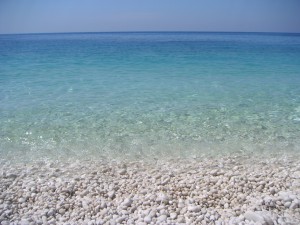Oltre 1 miliardo di persone nel mondo soffrono la fame, soprattutto in Africa. A scopo correttivo, ricostruire autosufficienza nelle 'national food economies' è l’ obiettivo finale. Ne sono strumenti l’aumento dei fondi per la ricerca e lo sviluppo agricolo, la diversificazione della produzione interna, la promozione della vendita diretta da produttore a consumatore, la realizzazione di riserve alimentari nazionali, la distribuzione equa e lo stop agli espropri dei terreni agricoli, il controllo sulle importazioni, l’abolizione dei dazi intra-Africa, la lotta alla corruzione. A livello internazionale, queste misure devono implementarsi con la realizzazione di riserve alimentari sovranazionali e di regolamenti per il controllo dei volumi alimentari esportabili in Africa da parte dei Paesi ricchi. Solo così sarà possibile contrastare gli effetti negativi delle politiche neo-liberali che minano l’autosufficienza alimentare, del neo-colonialismo agricolo e dello sfruttamento terriero per bio-carburanti, delle speculazioni sui titoli “future” delle materie prime alimentari, della monopolizzazione dei mercati da parte delle compagnie multinazionali occidentali

by Daniele Dionisio
PEAH – Policies for Equitable Access to Health
Autosufficienti ‘National Food Economies’ contro la Fame nel Mondo
La salute costituisce obiettivo trasversale a tutti gli Obiettivi di Sviluppo del Millennio. L’Organizzazione Mondiale della Salute (WHO) definisce, infatti, la salute non solo come assenza di infermità e malattia, ma anche quale stato di benessere fisico, mentale e sociale.
Salute e sviluppo economico sono, pertanto, embricati e non può esservi salute senza eliminazione della fame che attanaglia i Paesi poveri ed impedisce l’ accesso a cure e terapie essenziali. Complici la recessione globale e l’instabilità climatica, nel 2008 il prezzo della farina aumentò del 120%, mentre il valore di mercato del riso cresceva del 75%. In Bangladesh un sacco di riso da 2 chili erodeva quasi la metà del reddito giornaliero di una famiglia povera, mentre la Banca Mondiale (WB) prevedeva che oltre 20 nazioni dell’Africa avrebbero visto peggiorare la loro bilancia commerciale per una cifra corrispondente ad almeno l’ 1% del PIL a causa dell’aumentato costo delle importazioni dei generi alimentari.
Oggi, seppure lontani dai record del 2008, i prezzi degli alimenti base spesso restano inaccessibili e le persone che nel mondo soffrono la fame sono oltre 1 miliardo, soprattutto in Africa.
Certo, occorrono più fondi per la fame nei Paesi poveri, ma non possono bastare perché, al di là dei volumi, qualsiasi soluzione monetaria resta di fatto limitata all’emergenza. Piuttosto, sono necessari cambiamenti drastici delle prassi internazionali e delle politiche commerciali e governative principalmente in causa:
Politiche neo-liberali che minano l’autosufficienza dei Paesi nel settore produttivo alimentare
Negli ultimi decenni Banca Mondiale (WB), Fondo Monetario Internazionale (IMF) e Organizzazione Mondiale del Commercio (WTO) hanno condotto politiche di disincentivazione alla autonomia produttiva dei Paesi in via di Sviluppo (PVS) e contratto il supporto monetario e gli investimenti nelle produzioni agricole locali. Contemporaneamente, le riserve alimentari nazionali sono state progressivamente dismesse perché “dispendiose”, mentre accordi WTO hanno forzato i PVS verso logiche di importazione alimentare, con ridotta tassazione degli ingressi e accettazione di volumi per almeno il 5% del consumo interno, indipendentemente dalle necessità reali. Le politiche neo-liberali hanno minato la capacità dei PVS all’auto-sostentamento, rendendoli vulnerabili alle fluttuazioni dei prezzi alimentari determinate dalle politiche dei Paesi esportatori.
Neo-colonialismo agricolo e sfruttamento terriero per bio-carburanti
Negli ultimi anni paesi come Cina, Arabia Saudita, Emirati Arabi, Corea del Sud, ma pure Gran Bretagna, Germania, India, Svezia,… insieme a gruppi di investitori privati, hanno fatto incetta di terre in Africa sub-sahariana per produrre bio-carburanti (da monocolture di palma da olio, granturco, colza, canna da zucchero, jatropha,…) e alimenti da esportare nei rispettivi paesi. In questo contesto, tecnici, amministratori, dirigenti, giungono dall’estero, mentre i locali sono spesso relegati a forza lavoro sottopagata.
Secondo la FAO, la quota di terra agricola destinata a bio-carburanti aumenterà al 2-3,5% entro il 2030 (dall’ 1% del 2006), ponendo a rischio la sorte di 60 milioni di persone nei Paesi Poveri.
Speculazioni sui titoli “future” delle materie prime alimentari
La speculazione finanziaria internazionale ha un peso determinante sull’incremento dei prezzi degli alimenti sin dall’estate 2007, inizio della crisi finanziaria USA. Le compagnie transnazionali stabiliscono unilateralmente il prezzo di acquisto dei prodotti nei Paesi di origine e il prezzo di vendita nei Paesi di importazione. Ma anche se il cibo sui mercati dei PVS è di produzione locale, lauti guadagni vanno solo alle compagnie e agli intermediari che incettano dai contadini per un’ inezia e rivendono a prezzi assai superiori.
Nonostante la produzione rimanga elevata, analisti e multinazionali, basandosi su previsioni di contrazioni di offerta, cinicamente strumentalizzano i mercati: in Indonesia, al culmine del rialzo del prezzo della soia (gennaio 2008) la Compagnia PT Cargill tratteneva 13.000 tonnellate di soia nei magazzini di Surabaya in attesa di usufruire dell’ indotto record dei prezzi. Non è da meno il potere monopolistico di catene di supermercati gonfianti all’eccesso i prezzi dei prodotti agricoli.
Monopolizzazione dei mercati alimentari da parte delle compagnie multinazionali
Le multinazionali controllano i mercati. I loro sistematici acquisti di terre spesso si associano all’allontanamento degli originari lavoratori rurali, oppure all’obbligo imposto agli stessi di produrre monocolture (cacao, tè, canna da zucchero, caffè, palma da olio) destinate esclusivamente al mercato (invece che a sfamare le proprie famiglie). Il magro compenso monetario è poi insufficiente per i prefissati ed elevati prezzi di mercato del cibo sia di produzione locale che di importazione. Così il sistema perversamente genera ulteriore povertà e fame.
QUALI RISPOSTE?
I contesti analizzati richiamano alla necessità sia di riserve alimentari sovranazionali, sia di regolamenti internazionali per il controllo e limitazione dei volumi alimentari esportabili nei Paesi poveri da parte dei Paesi ricchi. Ma richiamano, altresì, all’urgenza di partenariati e strategie condivise per:
Aumentare i fondi per la ricerca e lo sviluppo agricolo
Negli ultimi decenni i fondi per la ricerca e lo sviluppo agricolo destinati ai PVS da WB e altre Agenzie per lo Sviluppo sono diminuiti drasticamente (International Food Policy Research Institute-IFPRI). Nonostante una attuale controtendenza, anche per merito di donatori privati, molto maggiore impegno occorre e l’aumento dei fondi potrebbe non bastare se i risultati di ricerca non si traducessero, a supporto e tutela degli agricoltori e consumatori, in autosufficienti produzioni alimentari nazionali.
Ricostruire autosufficienza nelle ‘national food economies’
L’ obiettivo implica percorsi simultanei e sinergici per piani governativi finalizzati ad equità e aumento di investimenti per la produzione domestica, con particolare attenzione alle imprese agricole a conduzione familiare e di piccola-media dimensione. Ciò costituirebbe argine contro la fame tenuto conto, ad esempio, che l’85% degli africani vive in comunità rurali principalmente dedite all’ agricoltura. Coerentemente occorrono:
Diversificata produzione interna
Significa consentire ai conduttori di fattorie di scala medio-piccola una produzione agricola non solo monocolturale per l’export, bensì mista con prodotti destinati a sfamare i produttori stessi oltre che alla vendita locale del surplus da parte dei medesimi.
Vendita diretta produttore → consumatore
L’effetto calmierante di questa misura sui prezzi al dettaglio, a vantaggio dei consumatori locali, appare scontato.
Realizzazione di riserve alimentari nazionali
Dovrebbero essere a gestione statale. Servirebbero a stabilizzare i mercati domestici, destinandosi, in periodi di fecondità, il surplus ai mercati, e invece utilizzando gli stocks per le necessità interne in caso di carestie.
Distribuzione equa e stop agli espropri dei terreni agricoli
Sono urgenti riforme agrarie per l’equa distribuzione delle terre ai contadini e per l’abolizione della pratica degli espropri, con il fine ultimo che l’equità coniughi con la necessità di realizzare piena autonomia produttiva nazionale e ridurre la dipendenza dagli aiuti.
Controllo sulle importazioni
Ai Paesi poveri deve essere garantita libertà di controllo sulle importazioni a tutela della produzione interna. Allo scopo, il mantenimento di una adeguata tassazione sugli imports dai Paesi ricchi sarebbe strumentale.
Abolizione dei dazi intra-Africa
Significa promozione di libero commercio tra i vari Stati africani ed è manovra attualmente in avanzato corso di implementazione per una molteplicità di Stati membri della Comunità di Sviluppo dell’Africa Australe (SADC), del Mercato Comune dell’Africa Orientale e Meridionale (COMESA), e della Comunità dell’Africa Orientale (EAC).
Lotta alla corruzione
Nel settore specifico, essa dovrebbe includere azioni di governo contro il radicato abusivismo interno al settore pubblico nei PVS, e contro l’accaparramento e ricircolo illecito, a prezzi gonfiati, di prodotti alimentari e fertilizzanti.
——————————————————————————————–
FONTI
–Via Campesina
–Food and Agriculture Organization of the United Nations-FAO
–International Energy Agency-IEA
–International Food Policy Research Institute-IFPRI
–GRAIN
–International Centre for Trade and Sustainable Development-ICTSD
–World Bank-WB
–World Trade Organization-WTO
–International Monetary Fund-IMF
–World Health Organization-WHO


